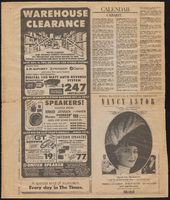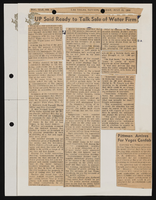Search the Special Collections and Archives Portal
Search Results
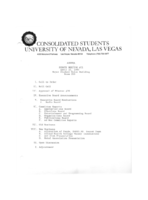
Meeting minutes for Consolidated Student Senate, University of Nevada, Las Vegas, October 14, 1980
Date
Archival Collection
Description
Text
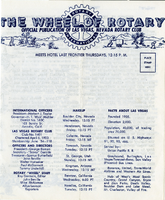
The Wheel of Rotary Las Vegas Rotary Club newsletter, December 23, 1954
Date
Archival Collection
Description
Text
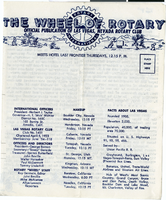
The Wheel of Rotary Las Vegas Rotary Club newsletter, January 6, 1955
Date
Archival Collection
Description
Text
C. A. Earle Rinker Photograph Collection of Goldfield, Nevada
Identifier
Abstract
The C. A. Earle Rinker Photograph Collection of Goldfield, Nevada (approximately 1900-1915) contains individual black-and-white photographic prints, photographic albums, black-and-white and tinted postcards, and photographic negatives that document the history of early twentieth century Goldfield, Nevada. The images include photographic prints of Goldfield and surrounding areas during its peak years of 1906-1910; postcards showing scenes of Goldfield, Tonopah, and other areas in central Nevada; and negatives that contain images of Rinker's family and homelife in Indiana and Illinois.
Archival Collection
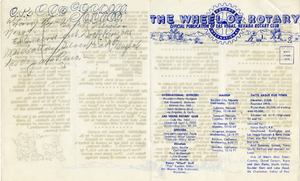
The Wheel of Rotary Las Vegas Rotary Club newsletter, August 4, 1949
Date
Archival Collection
Description
Text
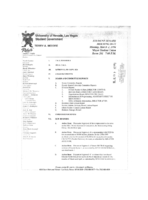
Meeting minutes for Consolidated Student Senate University of Nevada, Las Vegas, March 2, 1998
Date
Archival Collection
Description
Text
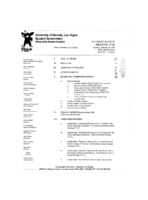
Meeting minutes for Consolidated Student Senate University of Nevada, Las Vegas, February 10, 1997
Date
Archival Collection
Description
Text

